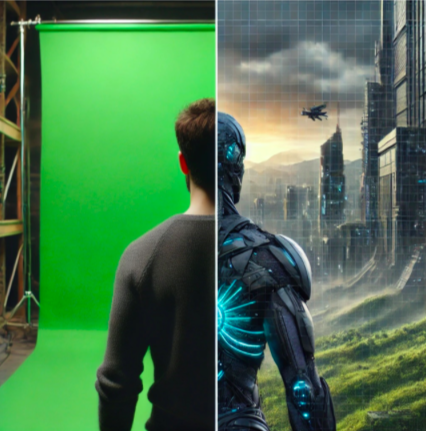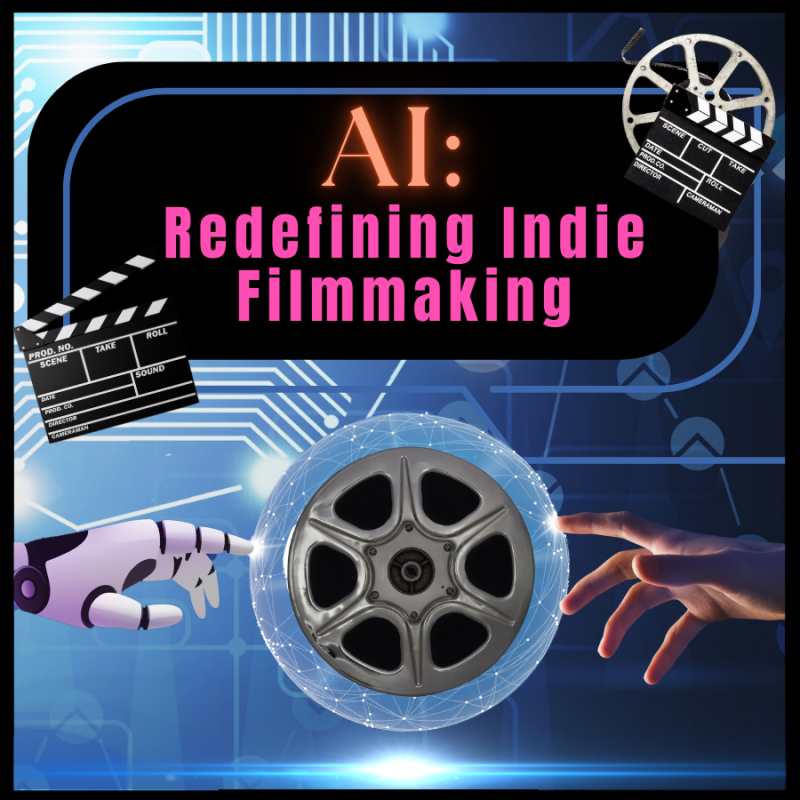Indie filmmaking has always been synonymous with resourcefulness and creativity. With tight budgets and smaller teams, independent filmmakers often find themselves wearing multiple hats to bring their visions to life. However, the rise of artificial intelligence (AI) is revolutionizing the way indie films are created, offering powerful tools that enhance creativity, streamline workflows, and stretch limited budgets.
Insights from the recent TIFFCOM Tokyo event underscore the transformative role AI is playing in film production. Whether it’s pre-production, visual effects, or post-production, AI empowers filmmakers to overcome traditional limitations and produce high-quality films that captivate audiences.
The Role of AI in Revolutionizing Film Production
AI is more than just a technological advancement; it’s a game-changing tool that is reshaping every stage of filmmaking. Here’s how AI is making an impact:
1. Streamlining Pre-Production
Pre-production sets the foundation for every film, and AI-powered tools are simplifying this critical stage:
Script Analysis: AI programs like ScriptBook analyze screenplays for structure, pacing, and emotional resonance. This helps filmmakers refine their scripts and ensure marketability.
Casting Optimization: Tools like Casting Networks use AI to match roles with the best actors by analyzing reels, previous performances, and character requirements.
Budgeting and Scheduling: AI-driven software like Cinelytic predicts financial outcomes and optimizes production schedules, ensuring indie filmmakers make the most of their resources.

2. Enhancing Visual Effects (VFX)
Gone are the days when breathtaking visuals were exclusive to big-budget films. AI has democratized visual effects:
Tools like RunwayML allow indie filmmakers to generate realistic environments, weather effects, and even characters without a massive VFX team.
AI reduces the time and cost associated with creating complex visual sequences, enabling indie creators to compete with studio-level productions.
3. Transforming Post-Production
Post-production is often the most time-intensive phase of filmmaking, but AI is revolutionizing this process:
Editing Assistance: AI tools like Adobe Sensei automate video editing, color grading, and scene recognition, allowing filmmakers to focus on storytelling.
Sound Design: Platforms like Descript enhance audio quality by removing background noise, fine-tuning dialogue, and balancing sound levels effortlessly.
Subtitles and Localization: AI tools generate accurate subtitles and translate dialogue, making films accessible to global audiences without additional costs.
4. Democratizing Animation and Motion Capture
AI platforms like Deepmotion and Wonder Studio enable filmmakers to create high-quality animations and realistic motion capture directly from their laptops. This technology bridges the gap between indie filmmakers and blockbuster-level productions.
AI: A Creative Partner for Filmmakers
AI doesn’t replace creativity; it enhances it. With technical tasks streamlined, indie filmmakers can devote more time to crafting compelling stories. AI also opens doors to new creative possibilities:
Dynamic Storyboarding: AI programs like Storyboarder translate scripts into visuals, helping filmmakers refine scene composition and pacing.
AI-Generated Music: Tools like AIVA compose original scores tailored to a film’s mood, eliminating the need for expensive composers while maintaining quality.
Audience Insights: AI can analyze trends and audience preferences, offering valuable insights to help filmmakers create stories that resonate deeply.
Case Studies: Indie Films Leveraging AI
Some indie filmmakers are already reaping the benefits of AI:
- A sci-fi thriller used AI to generate alien environments, drastically reducing the cost of set design and VFX.
- Micro-budget filmmakers have simulated realistic crowd scenes using AI, avoiding the need to hire extras.
- Directors have relied on AI for real-time feedback on shot composition, ensuring their creative vision is perfectly executed.
Ethical Considerations in AI Adoption
While AI is a powerful tool, it comes with ethical responsibilities. Indie filmmakers should be mindful of:
- Copyright Issues: Ensure you have legal rights to use AI-generated content in your work.
- Actor Representation: Avoid unethical practices like replacing actors with AI-generated replicas without consent.
- Authenticity: While AI can simulate emotions or create virtual characters, filmmakers should strive to retain the human touch in their stories.
Embrace AI to Empower Your Filmmaking
For indie filmmakers, AI represents a golden opportunity to push creative boundaries and overcome traditional obstacles. By integrating AI into their workflows, filmmakers can craft high-quality productions, tell compelling stories, and stand out in a competitive industry.
With the right balance of technology and creativity, the possibilities are endless. As the indie film community continues to embrace AI, it’s clear this technology is not just a tool but a catalyst for a new era of storytelling.
Transform Your Storytelling with Hero’s Journey Guide Cards

Want to craft narratives that captivate audiences and attract top-tier talent to your project? Pair the power of AI tools with the timeless storytelling framework of Hero’s Journey Guide Cards. These cards are your ultimate resource for designing emotionally resonant character arcs and transformative narratives that leave a lasting impact.
Don’t miss the chance to elevate your storytelling and stand out in the competitive indie filmmaking world. Combine creativity with cutting-edge tools to tell stories that truly resonate.Unlock the Power of Hero’s Journey Guide Cards and Transform Your Filmmaking Today!

